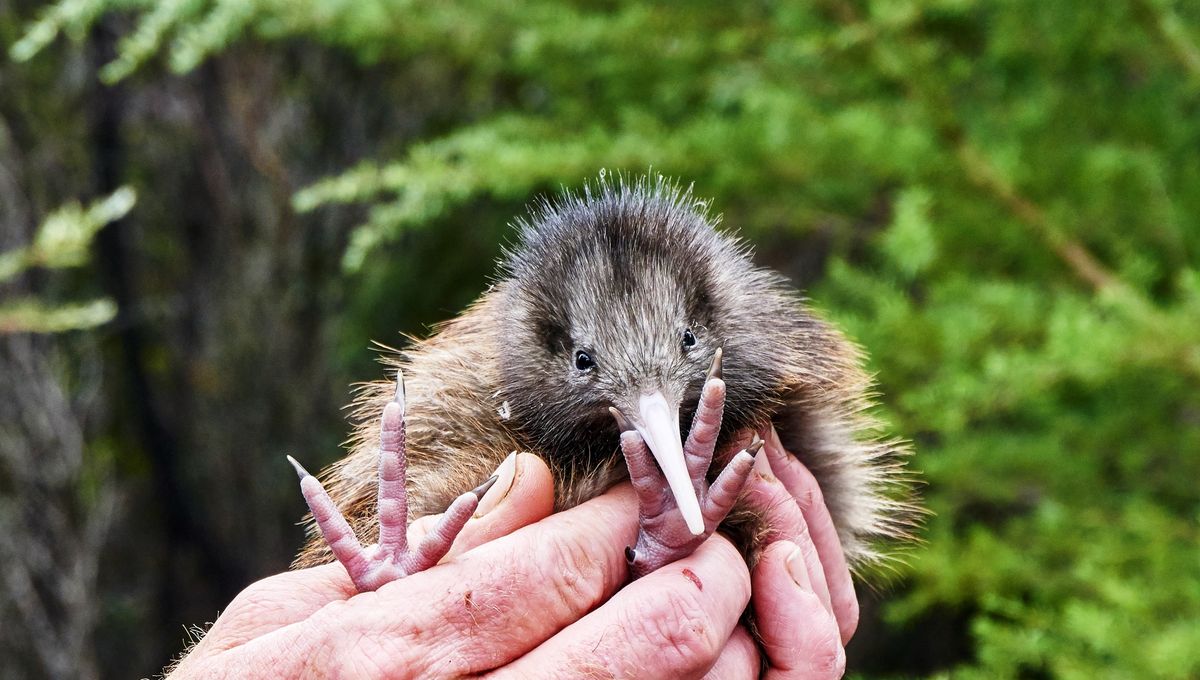
Nowhere in the world has a more iconic national bird than New Zealand, so much so that the people of the island nation have adopted the nickname “the Kiwis” as their moniker. These easily recognizable flightless birds have faced countless problems with the rise of invasive species in their native home, but conservation efforts have helped protect the different species from these interlopers. Now, wild kiwi chicks have hatched just outside the nation’s capital city, Wellington, for the first time in over a century.
There are five species of kiwis living in different areas of New Zealand: the North Island brown kiwi (Apteryx mantelli), tokoeka (Apteryx australis), rowi (Apteryx rowi), great spotted kiwi (Apteryx haastii) and little spotted kiwi/kiwi pukupuku (Apteryx owenii). According to Save The Kiwi, there are only around 24,500 of the brown kiwi species left in the wild.
This is largely because of invasive species; kiwis evolved in a predator-free island habitat and as a result, have almost no natural defenses. At one stage, the problem of invasive species was so bad it was thought that 20 kiwis were killed per week. However, the Capital Kiwi Project has been working to restore a thriving kiwi population in the Wellington area and last year, released around 60 adult birds into the wild.
The conservationists have since announced that, in the last two weeks, four fluffy brown kiwi chicks have been found in the hills surrounding Wellington, first discovered by a volunteer. The chicks are the first to hatch into the wild in this area in more than 150 years and the project shared photos of the young chicks to their Instagram account.
“This is very special for the team which has been working hard for the last few years,” project founder Paul Ward told AFP.
The team will continue to monitor the chicks until they reach the target weight of 800 grams (1.7 pounds). This is deemed large enough to be able to stand up to a stoat (Mustela erminea), a smaller member of the mustelid family – they’re an invasive species in New Zealand and have spelled big trouble for kiwi populations. Capital Kiwi had previously embarked on a mission to remove the predator from the area by laying 4,600 traps with help from local mountain bike riders. They also took to teaching local dog walkers how to keep kiwis safe from their pets.
“Everyone was so supportive. Who isn’t keen to care for kiwi?” Ward told The New York Times.
The project founder thinks there might even be more chicks out there in the hills surrounding Wellington ready to make their comeback. Speaking to AFP, Ward said: “We have high hopes these will be the first of many.”
Source Link: Wild Kiwi Chicks Hatch In New Zealand’s Capital For First Time In Over 150 Years